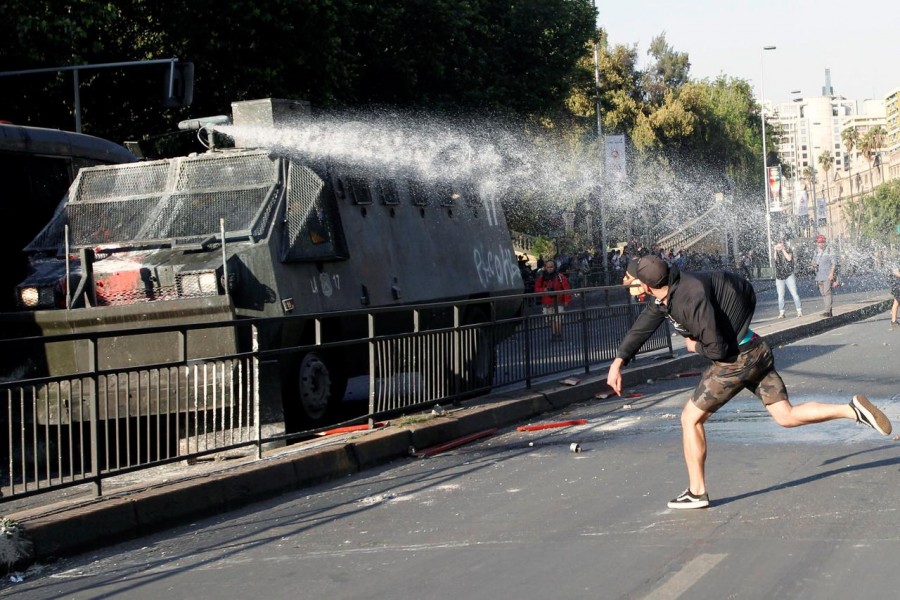Chile's President Sebastián Piñera has suspended a rise in metro fares that sparked protests across the country.
Soldiers and tanks were deployed in the capital, Santiago, after the government declared a state of emergency but demonstrations continued on Saturday.
After some clashes, a night curfew was announced in restive areas.
The protests have broadened to reflect general discontent about the high cost of living in one of Latin America's most stable countries.
The unrest, the worst in decades, has exposed divisions in the nation, one of the region's wealthiest but also one of its most unequal, and intensified calls for economic reforms.
In parts of Santiago, hundreds of troops were deployed in the streets for the first time since 1990, when Chile returned to democracy after the dictatorship of Augusto Pinochet, the BBC reported.
In the second day of violent demonstrations, protesters erected barricades and set buses on fire, and police used tear gas and water cannon. Clashes erupted in the city centre with Mayor Felipe Alessandri describing the situation as chaotic.
More than 300 people have been arrested, and 156 police injured, as were 11 civilians, police said.
Speaking on television, Mr Piñera, whose response to the protests has been criticised, said he had listened "with humility" to "the voice of my compatriots" and to discontent over the cost of living.
Gen Javier Iturriaga del Campo, who is in charge of security in Santiago under the state of emergency, said a curfew would be enforced between 22:00 and 07:00 (01:00-10:00 GMT) in the city and outlying areas.
The military is due to help police patrol the streets during a declared 15-day state of emergency that allows authorities to restrict people's freedom of movement and their right to assembly.
Earlier, cultural and sporting events were cancelled and shops remained closed. The city's underground system will remain shut down until Monday, with 41 of 136 stations vandalised.
Protests were also reported in the cities of Concepción, Rancagua, Punta Arenas, Valparaíso, Iquique, Antofagasta, Quillota and Talca, according to El Mercurio newspaper.
Meanwhile, a picture of President Piñera in an upmarket Italian restaurant on Friday evening as police and demonstrators clashed in Santiago was heavily criticised on social media.
Critics said the image, reportedly during a birthday celebration for the president's grandson, were emblematic of a leader out of touch with ordinary Chileans.


